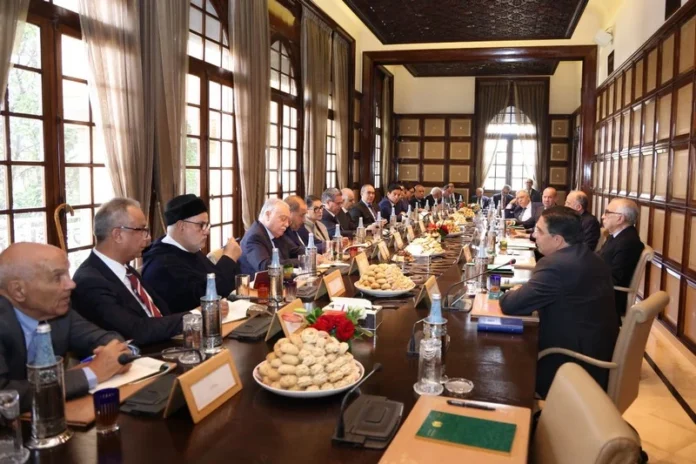In a move that reaffirms the Moroccan Sahara as a central issue of national policy, a meeting took place on Monday, November 10, 2025, at the Royal Palace, chaired by the King’s advisors, Messrs. Taïeb Fassi Fihri, Omar Azziman, and Fouad Ali El Himma, with the participation of party leaders represented in Parliament, alongside the Minister of the Interior and the Minister of Foreign Affairs, African Cooperation, and Moroccans Abroad.
According to the Royal Cabinet’s statement, the meeting aimed at updating and detailing the autonomy initiative in the Moroccan Sahara, following the recent UN Security Council Resolution 2797. This gathering reflects the King’s instructions in his October 31 speech, emphasizing a consultative and participatory approach involving all political forces and national institutions.
Political leaders had the opportunity to present their visions and proposals, in line with Moroccan sovereignty and with a focus on securing the rights and future of Sahrawi populations—particularly the reunification of those in Tindouf camps with their families and enabling their participation in local governance within a unified Morocco.
The attending leaders expressed their full commitment under the wise leadership of His Majesty, and their support for continuous efforts to assert Morocco’s sovereignty over the Sahara, as recognized in the recent Security Council resolution. The Moroccan autonomy initiative is thus reaffirmed as the realistic and feasible solution, forming the foundation for any negotiations toward a final settlement of the regional conflict.
Yet this meeting raises critical questions: will this participatory approach move from consultation to practical implementation on the ground? How will parties’ proposals translate into concrete policies facilitating the return of Tindouf populations? Could this detailed update of the autonomy initiative serve as a model for regional conflict resolution, balancing sovereignty, stability, and local participation?
The statement concludes by noting that party leaders are committed to submitting detailed reports to His Majesty without delay, reinforcing Morocco’s national mobilization around the Sahara—not only as a political issue but as a strategic matter crucial to the nation’s future, security, and regional stability.


